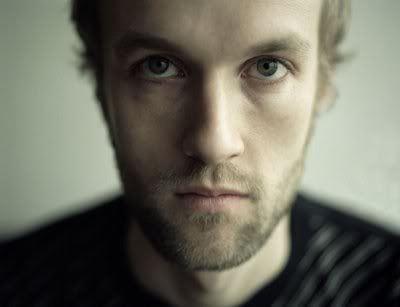Artists such as Thom Yorke, Hot Chip, Simon Tong (The Good, The Bad and The Queen, Gorillaz, The Verve), and John Maclean (The Beta Band, The Aliens) have all remixed pieces for the label.
Gabriel Prokofiev, who will host and DJ the Nonclassical showcase, has experimented with various genres, producing dance, electro, and hip-hop music while also composing orchestral pieces and remixes of his own work. I caught up with Prokofiev last week while he was resting up for SXSW at home in London to explore the genre-blending nature of Nonclassical’s music.

Gabriel Prokofiev photographed by Charlie Hopkinson
What led you to found Nonclassical?
It started because I was really keen to find a way as a composer of getting new music I was writing out to people my own age group and to a younger audience. I wanted to set up a platform where posh classical music could be out in the real world rather than just stuck in the more traditional classical scene.
How did your musical projects evolve over time?
When I was at school I was into pop music and I got hooked on the excitement of writing a melody. From then onwards I was always in bands and playing gigs. Besides that I was doing piano and studying music at school so I was doing classical music as well. Later when I finished a degree, I felt increasingly frustrated with the classical scene – it just felt really detached from the real world. But the thing with classical music is that you’ve got a bit more freedom. Strangely a lot of pop music, though seen as rebellious music, is actually very conservative. So many songs stick to the same formula, whereas with classical music, you're encouraged to go off and create your own approach, be more adventurous. That appealed to me, but at the same time when I did classical music I missed the communication you get with a wider, younger audience.
There are tons of artists working today who have no formal musical training but who create immensely complex music. Do you think your training gives you a different perspective on modern music?
I’ve never had a composition teacher that I really clicked with – I personally like to follow my feelings rather than be too technical about what I write. It can be helpful sometimes – I think maybe if you don’t have training it’s easier to fall into clichés or things that have already been done. It’s just a useful tool, but it’s not essential. What’s really important is originality of ideas. Sometimes it can be an advantage when you haven’t had training – you don’t feel you ought to do anything in particular and you come up with a newer approach. That’s how much of the most pioneering music of our century has come about.
Your music breaks out of the constraints of traditional music and shows highly intertextual threads – what do you think this has to say about the evolution of music?
I think for music to evolve it has to respond to the world it’s in and not be cut off from society. I think classical music in particular has evolved in a kind of academic way, where they’ve analyzed music and then shaped it in an intellectual manner. Whereas if you take movements like jazz or rock ‘n roll or dance music, they just slowly evolve from people influencing each other and you get something that is natural. I think it’s important for classical music to try to evolve in the same way. So I’m interested in experiencing all the other music that’s around and modern life and try to kind of let that seep into the music I’m making.
Who are your greatest influences?
All the usual suspects really, I imagine. Obviously I’ve got this well-known grandfather, and he was a big influence on me. I love Russian music – Stravinsky and more recently Schnittke. I like John Cage a lot as well. I like funk music – when I was a kid I bought all the Parliament-Funkadelic albums. Hip-hop music too, especially earlier hip-hop when it was less aggressive and less concerned with money and weapons.
What are you looking forward to at SXSW?
I think the atmosphere is incredible. I’ve been once before, I think 3 years ago. You can just go from venue to venue and experience such a range of different music, and the standards are so high, so that’s very inspiring. It makes you really aware of how many creative musicians there are out there. I haven’t even properly looked at the program yet, but I feel like you don’t really need to. You just know that you’ll stumble across things, probably things you’ve never heard of. And I think that’s the exciting thing. Similarly, I hope people will stumble into the Nonclassical night and be pleasantly surprised.
Nonclassical brings its beats and strings stateside with a showcase on March 21 at The Tap Room, hosted and DJed by Gabriel Prokofiev and featuring the Elysian Quartet, John Matthias & Nick Ryan, and many others.

No comments:
Post a Comment